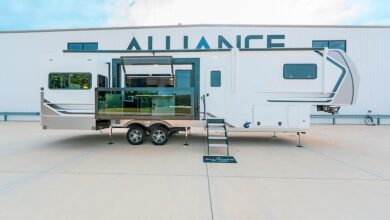CEO Offers Details Behind LKQ’s Recent Earning Report

During LKQ’s April 28 Q1 earnings call, President and CEO Nick Zarcone said supply chain transport issues continue to “provide challenges,” and inflationary pressures, though also a challenge, didn’t keep the company from making profit.
“During periods like this, companies have a choice – wait and see the impact and play defense or anticipate the impact and play offense,” Zarcone said, in reference to inflation. “LKQ chose to play offense, and the benefits of doing so can be found in our results. This is particularly true with respect to the exceptional organic revenue growth achieved in our North American wholesale and European segments. Both of which benefited from strong demand for automotive products as mobility and claims volumes increased while pushing prices in an attempt to offset most of the inflationary pressures.”
Organic revenue growth for parts and services in North America increased 13.6 percent during the quarter with industry-wide overall claim counts increasing 12.2 percent over 2021’s first quarter, he added. Recycled and remanufactured parts also saw higher growth compared to last year.
LKQ Corp. is the parent company of NTP-STAG.
“On the aftermarket front, we have been successful in passing through inflationary cost increases despite the supply chain challenges, which are causing volumes to be down relative both to last year and 2019,” Zarcone said. “… In part due to headwinds from parts availability and more so due to labor constraints, during Q1, the national average scheduling backlog at collision repair shops reached 4.5 weeks, two-and-a-half times the length of the typical first quarter backlog.”
It was noted during the call that total revenue for LKQ’s Pick Your Part Self Service Auto Parts segment was flat compared to 2021, which Zarcone said was a reflection of “the relative softness in metals pricing.”
He also noted that average vehicle repair costs have risen steadily every year since 2016 with the largest increases taking place in the past two years and, ultimately, reaching an “all-time high” last year. Aftermarket collision parts volumes were also down during Q1, Zarcone said.
Click here to read the full story from Lucah Lowery in Repairer Driven News.


